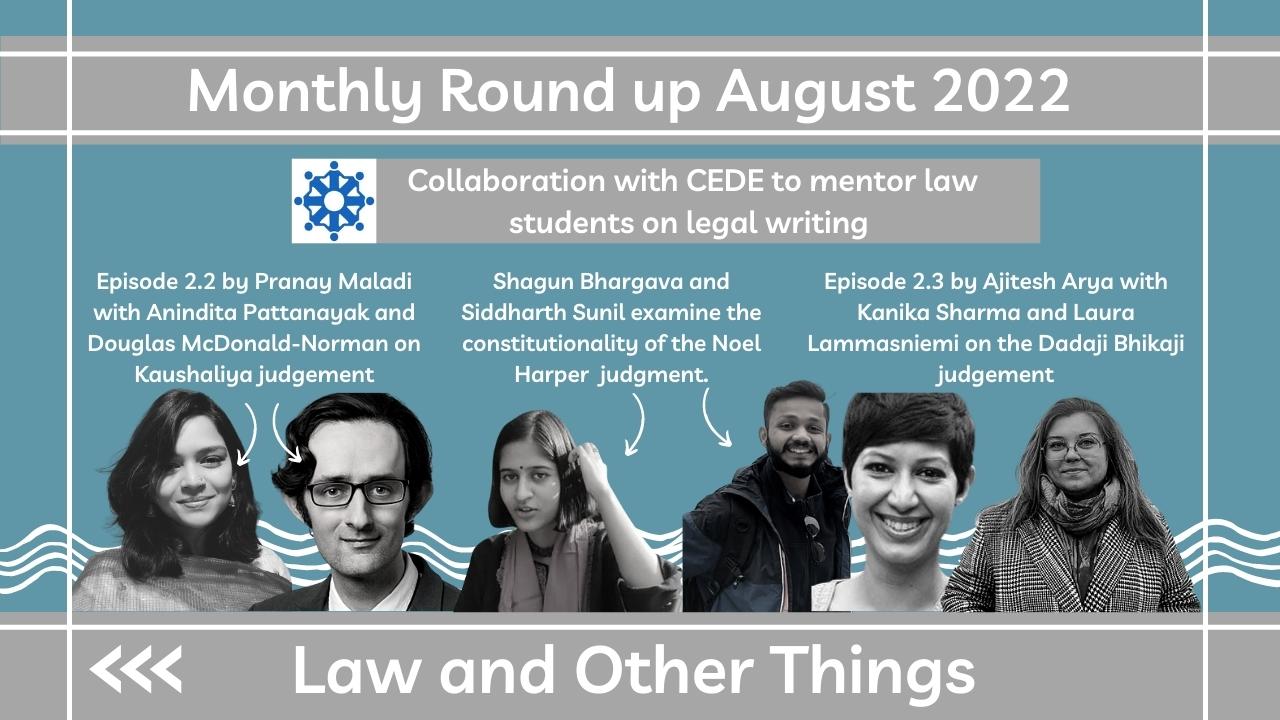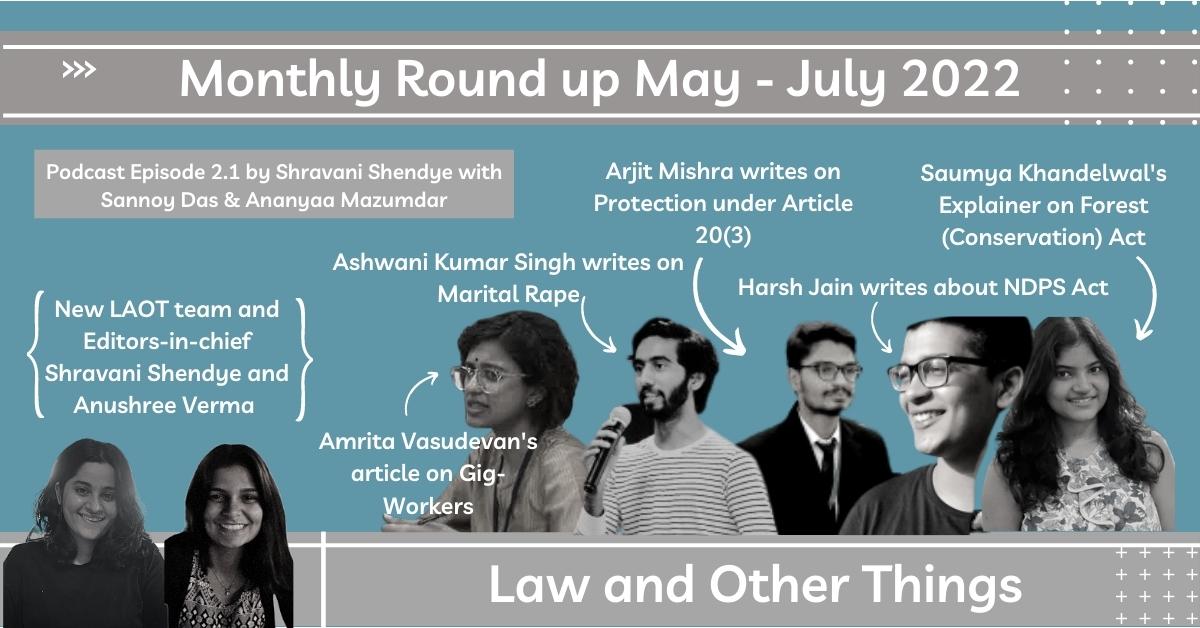This month, Law and Other Things published a range of articles & discussions. Below, we bring you an update on the Blog’s activities over the month of March 2021.
Blog Posts
We started off with Shubhankar Tiwari and Snehil Tiwari’s article on the authority and independence of the CBI, titled Examining the statutory framework of “CBI- The caged parrot”. We then published Harsh Jain’s Ruling by executive fiat: Time for greater judicial control, in which he examines the promulgation and justiciability of ordinances, focusing on the anti-conversion legislation in UP and the anti-cow slaughter legislation in Karnataka. Our reporter Sahil Agarwal also brought you an explainer on the landmark judgement pronounced by the Delhi High Court in the defamation case of MJ Akbar v. Priya Ramani.
New Scholarship
In the New Scholarship section, we bring you recently published scholarship in the area of public law with engaging discussions surrounding some of them.
We kicked off the month with a new book discussion on Swethaa Ballakrishnen’s Accidental Feminism: Gender Parity and Selective Mobility among India’s Professional Elite, in which they argue that although there appears to be striking gender parity in Indian corporate law firms, this phenomenon is largely “accidental”, and examine causes for the same. The discussion was introduced by Nicholas Robinson here. This was followed by a a review from Dr. Akshaya Kamalnath, in which she explored insights that emerge from the book. The next review was contributed by Dr. Nida Kirmani, highlighting questions that could be explored further. Following this, Hemangini Gupta provided her response to the book, in which she discusses fresh insights that the book offers.
We also published a review authored by Md Lokman Hussain of the book Constitutional Findings in South Asia, highlighting its contribution to literature on constitutional histories. We continued our discussion of articles from Volume 4 Issue 2 of the Indian Law Review (indexed here), with Dr. Farrah Ahmed’s Arbitrariness, Subordination and Unequal Citizenship. We started with Dr. Ahmed’s introduction to the arguments made in her paper, where she explores the constitutional principles of anti-subordination and anti-arbitrariness to tackle the Citizenship Amendment Act, 2019. This was followed by Apurva Thakur’s response, which takes up an examination of Dr. Ahmed’s arguments.
We also concluded the discussion of Zaid Deva’s Basic without Structure? : the Presidential Order of 1954 and the Indo-Jammu & Kashmir Constitutional Relationship with the author’s response to Muhammad Mutahhar Amin’s engagement with the paper. We then took up Preeti Pratishruti Dash’s Rape adjudication in India in the aftermath of Criminal Law Amendment Act, 2013: findings from trial courts of Delhi for discussion, which studies the patterns and trends in rape adjudication before and after the 2013 amendment to rape laws. Her summary of the paper can be found here.
You can sign up for our Monthly Newsletter here or follow us on Facebook, LinkedIn, Twitter or Instagram.






Thanks for sharing. I read many of your blog posts, cool, your blog is very good. https://www.binance.com/tr/register?ref=W0BCQMF1